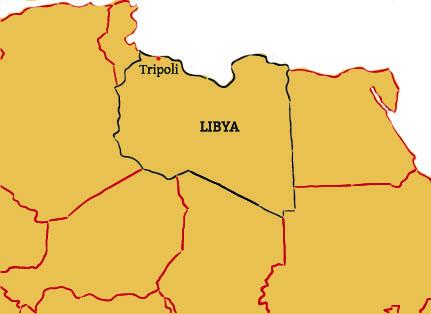Continuing his weekly series about the complexities of the Middle East, Ahmed Aboudouh examines Libyan general Khalifa Haftar’s planned attack on Tripoli
Libya’s strongman-general Khalifa Haftar this week announced an all-out attack on the capital, Tripoli. The self-proclaimed commander of Libya’s national army wants to end the authority of the UN-recognised government, which relies, for security and defence, on a mosaic of armed militias comprising Islamist fighters and local tribesmen from the nearby city Misrata, the main bastion of militia in the west of the country. Since 2014 the country has been split into competing political and military factions: one in the east, backed by Haftar and the democratically elected parliament; the other based in Tripoli (the west) and recognised by the UN. Haftar controls the oil fields in the east and south of the country. Libya has estimated oil reserves of 48 billion barrels, but its exports have been in turmoil since the fall of Muammar Gaddafi in 2011. Oil is key to the success of the local armed rivals, as well as to the war of economic and strategic interests of international backers.
What is happening in Tripoli?
In a speech on Wednesday, Haftar promised to recapture Tripoli, citing his legitimacy as the only leader who can secure stability in the region and put an end to the eight-year civil war. But seizing control of Tripoli is not easy. An attempt back in April failed when Haftar underestimated the strength and military capabilities of the battle-hardened militiamen defending Tripoli. The city has been the source of legitimacy and recognition for a government which is not capable of governing. Haftar, who was involved in a failed coup attempt in 2014 to take control of the country of 6 million, still maintains his desire for the top job. This spooks Islamists who see him as a pawn in a regional game, where the players want to thwart any ambitions the Islamists have to make a comeback in Libya and the Middle East.
Is this just a local issue?
Absolutely not. Libya is at the heart of battling agendas. Turkey and Qatar are betting on the militias in Tripoli (especially the Muslim Brotherhood-affiliated groups) to build a strategic base for ideological and economic ventures, mainly in the energy sector. They showered Haftar’s foes with drones, armoured vehicles, Turkish-manufactured tanks and pistols. Turkish president Recep Tayyip Erdogan has pledged to back the government forces until the end; many analysts accuse Qatar of supporting militia leaders designated terrorists by the US.
Opponents accuse Haftar of restoring Gaddafi’s authoritarian regime. With a generous military, diplomatic and political support package from Egypt, the UAE, France and Russia, he is trying to position himself under the umbrella of internationally acknowledged statecraft. But he still lacks the gravitas required for high office, and his behaviour reflects that of a warlord rather than a man of state.
What will happen next?
Not much for now. Fighting is expected to grind on. While the Europeans tackle the flow of refugees and Trump focuses on the stability of oil prices, Libya’s future nevertheless looks grim. Europeans are just as tangled as the Libyans in the ferocious fight for influence in the country, but most are united on the refugee problem after Libya, located on the southern bank of the Mediterranean, became a refugee launching pad pointed at Europe.
The airstrike that killed 60, mainly African, refugees in a detention centre in the city of Tajura (14km east of Tripoli) this month was a tipping point in the war. Neither party took responsibility for the attack. Trump, who is trying to impose a brutal oil embargo on Iran, contacted Haftar in April, promising American support for his campaign. Officials in the State Department rebuffed claims that the US is backing Haftar.
As with his long battles to seize other big cities, such as Benghazi and Derna, Haftar is expected to be bogged down in Tripoli for months to come. The real question now is: are world powers really interested in peace for Libya?

Join our commenting forum
Join thought-provoking conversations, follow other Independent readers and see their replies
Comments